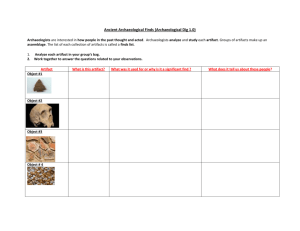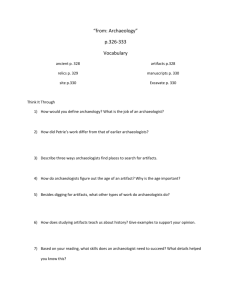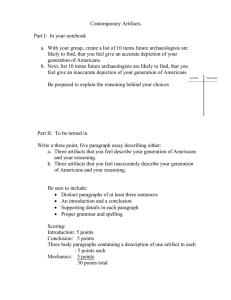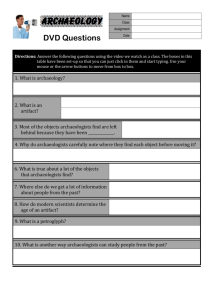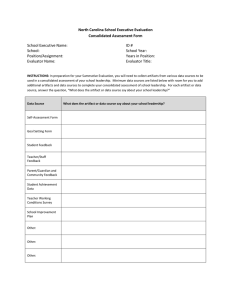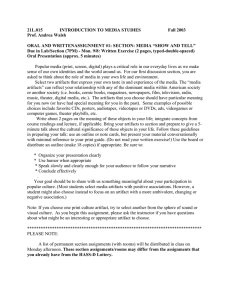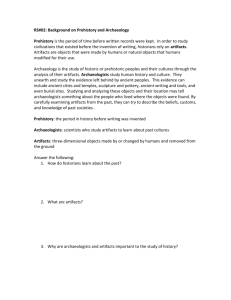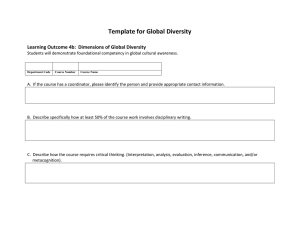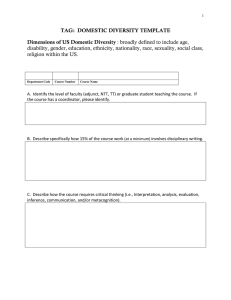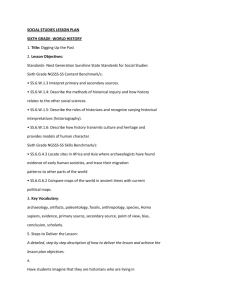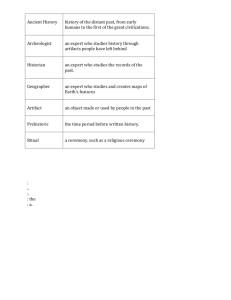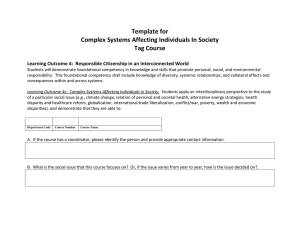Exploring the Past: True or False Worksheet
advertisement
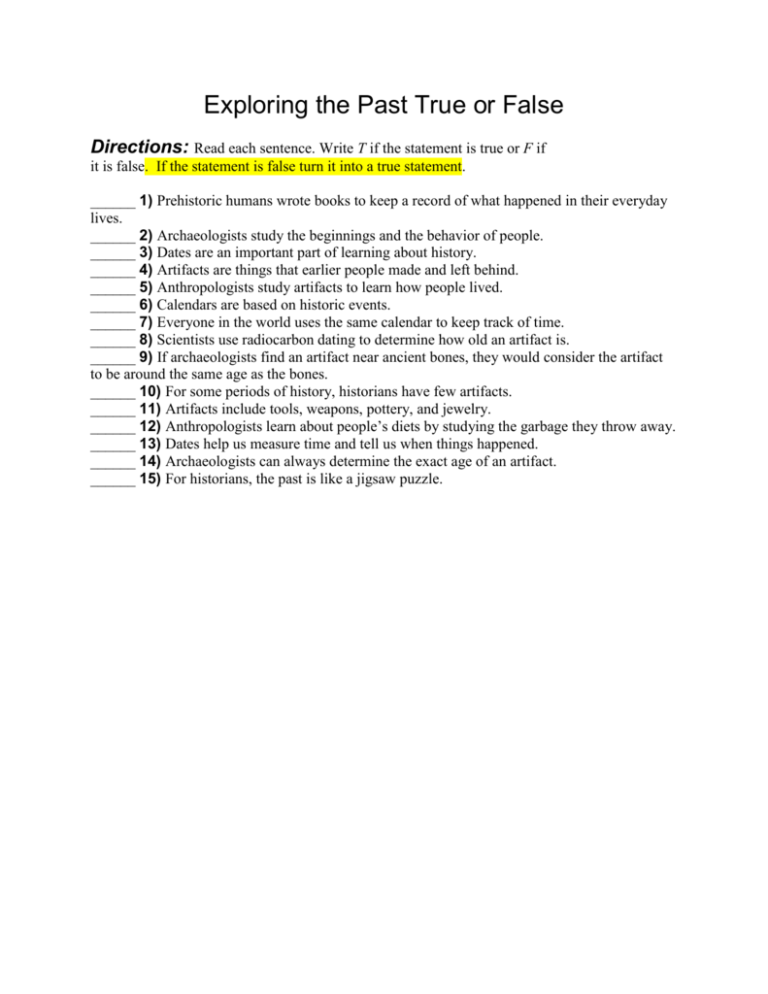
Exploring the Past True or False Directions: Read each sentence. Write T if the statement is true or F if it is false. If the statement is false turn it into a true statement. ______ 1) Prehistoric humans wrote books to keep a record of what happened in their everyday lives. ______ 2) Archaeologists study the beginnings and the behavior of people. ______ 3) Dates are an important part of learning about history. ______ 4) Artifacts are things that earlier people made and left behind. ______ 5) Anthropologists study artifacts to learn how people lived. ______ 6) Calendars are based on historic events. ______ 7) Everyone in the world uses the same calendar to keep track of time. ______ 8) Scientists use radiocarbon dating to determine how old an artifact is. ______ 9) If archaeologists find an artifact near ancient bones, they would consider the artifact to be around the same age as the bones. ______ 10) For some periods of history, historians have few artifacts. ______ 11) Artifacts include tools, weapons, pottery, and jewelry. ______ 12) Anthropologists learn about people’s diets by studying the garbage they throw away. ______ 13) Dates help us measure time and tell us when things happened. ______ 14) Archaeologists can always determine the exact age of an artifact. ______ 15) For historians, the past is like a jigsaw puzzle.
